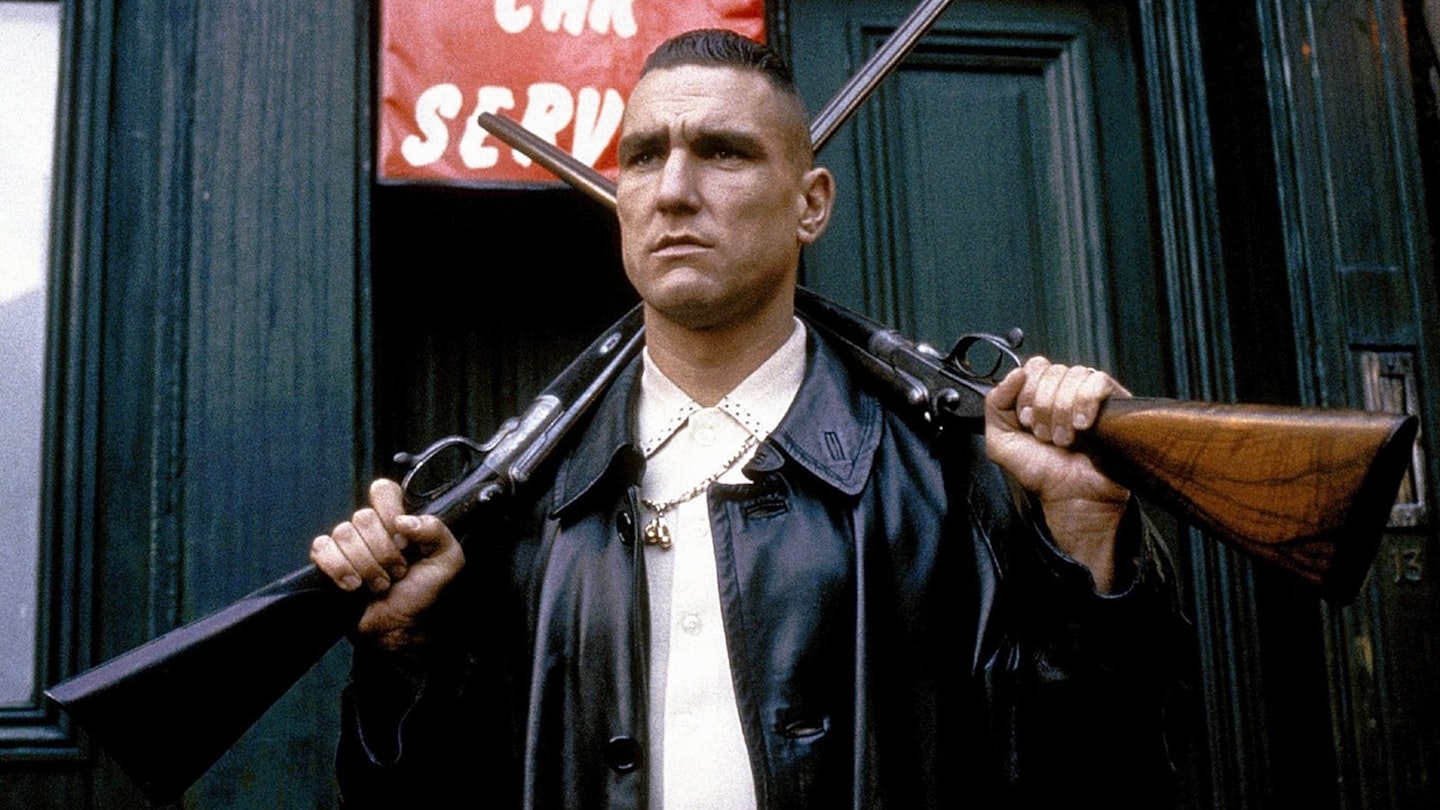Britain’s contributions to the cinematic form have been vast and glorious. Aardman Animation. Alfred Hitchcock. Olivia Colman. 007. High up that list, too, is the British gangster movie – sure, America may often get the genre limelight with classics like Goodfellas, The Godfather trilogy, and Scarface, but nobody does dark, gritty, violent, and darkly humorous quite like the British. You certainly wouldn’t catch football-hardman-turned-movie-hardman Vinnie Jones rolling down the street with some poor geezer’s bonce trapped in his car window anywhere else, that’s for sure!
And so, with tracksuits on, geezer nicknames doled out, and knuckles dusted, Team Empire assembled a list of the very best British gangster movies ever made. From comedy classics, to bruising turn-of-the-century tales of brutality and crime, to contemporary subversions of the genre formula, we’ve covered all bases. These are films of culture, sophistication, genius. A little bit more than an 'ot dog, know what we mean?
15) Bull (2021)
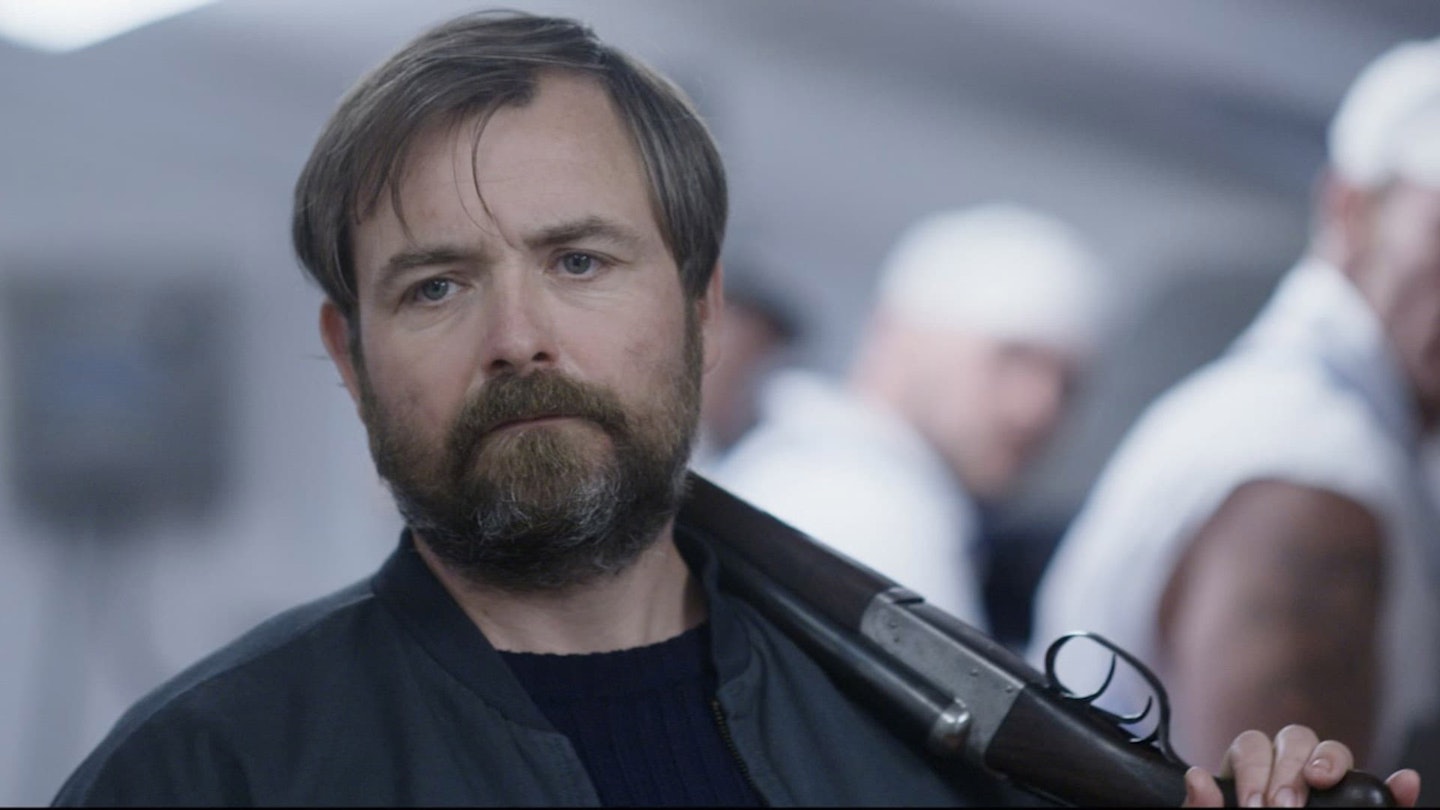
Neil Maskell, a man who can make licking a 99 flake look sinister, is rarely as good as he is in Bull, an under-the-radar indie gangster film with a heck of a sting in its tail — and one that deserves more eyeballs on it. The tone of this thing is less good-time geezers, more brooding mystery: a gangster movie with a haunting, unsettling sense of regret. When Maskell’s titular Bull makes an unexpected and unwelcome return to his bleak caravan-heavy criminal community... well, don’t call it a comeback. Writer-director Paul Andrew Williams brilliantly turns the stock man-on-a-mission revenge-thriller template on its head, charged with a violent, unrelenting, singular focus. Its shocking ending will stick with you long after the credits — and may well make you reconsider your caravan holiday.
Read the Empire review here.
14) Down Terrace (2009)

Ben Wheatley’s career has taken him from Tudor psychedelia (A Field In England) to Jason Statham on a jet ski (Meg 2: The Trench) — but it all started with Down Terrace, a darkly funny riff on everything we thought we knew about gangsters. Made with a budget that could barely stretch to a shoestring, it has a scrappy energy and aesthetic, but quickly establishes the tone that Wheatley would become known for: a dry-to-the-bone caustic sense of humour, a predilection for violence, and an understated sense of naturalism, one that grounds the usual gangster clichés into something feeling real. Set in Wheatley’s native Brighton, it sees a family of criminals trying to smoke out the snitch in their midst, with increasingly bloody results. This is both a fascinating artefact of a nascent esoteric filmmaker, and a unique spin on the ‘crime family’ template: Sopranos-On-Sea, if you like.
Read the Empire review here.
13) Snatch (2000)
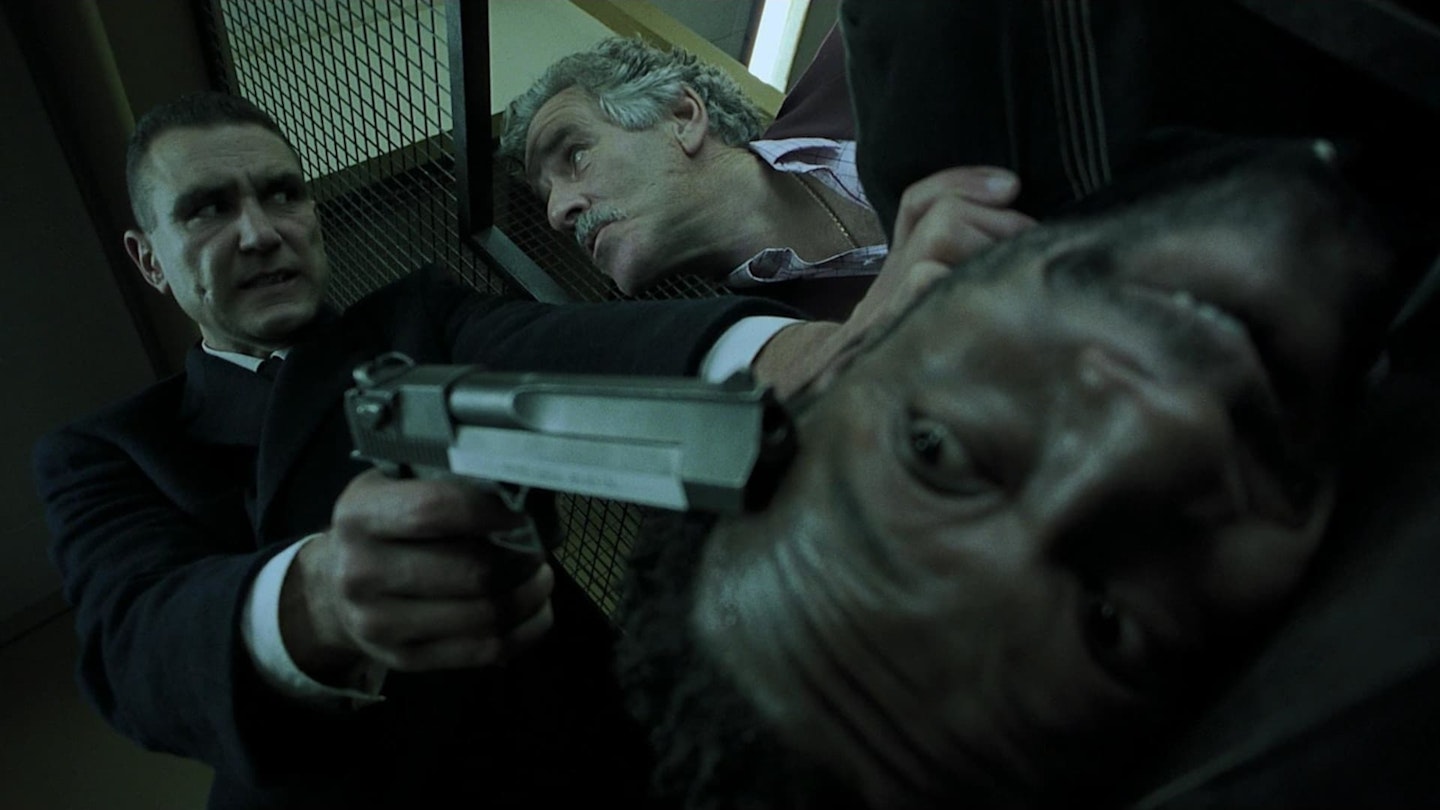
Rarely has the C-bomb been deployed with such symphonic flare than by Alan Ford’s aging gangster Brick Top in Snatch. Ritchie’s swaggering follow-up to Lock, Stock And Two Smoking Barrels, Snatch’s diamond heist/bare-knuckle combo manages to shoulder more narrative weight than its predecessor, while upping the gag count and maintaining the same sense of giddy pandemonium. But for all its creative expletives and music video flare, it’s the characters who truly bring Ritchie’s world to life – it’s hard not to love Jason Statham’s blagging fight-promoter Turkish, Stephen Graham’s hapless Tommy, Lennie James and Robbie Gee’s incompetent gangsters, Benicio Del Toro’s Franky Four-Fingers, Rade Šerbedžija’s Boris The Blade. Even Brad Pitt’s One-Punch Mickey, whose character has aged slightly less well, remains preposterous fun. And then of course there’s Ford’s Brick Top, a ruthless mobster and self-styled, ‘orrible cunt, who is by turns utterly terrifying and completely hilarious. The film drew mixed reviews upon release from those who thought it a tonal re-tread of Lock, Stock. All we can say to that is… feed ‘em to the pigs, Errol.
Read the Empire review here.
12) Gangster No. 1 (2000)
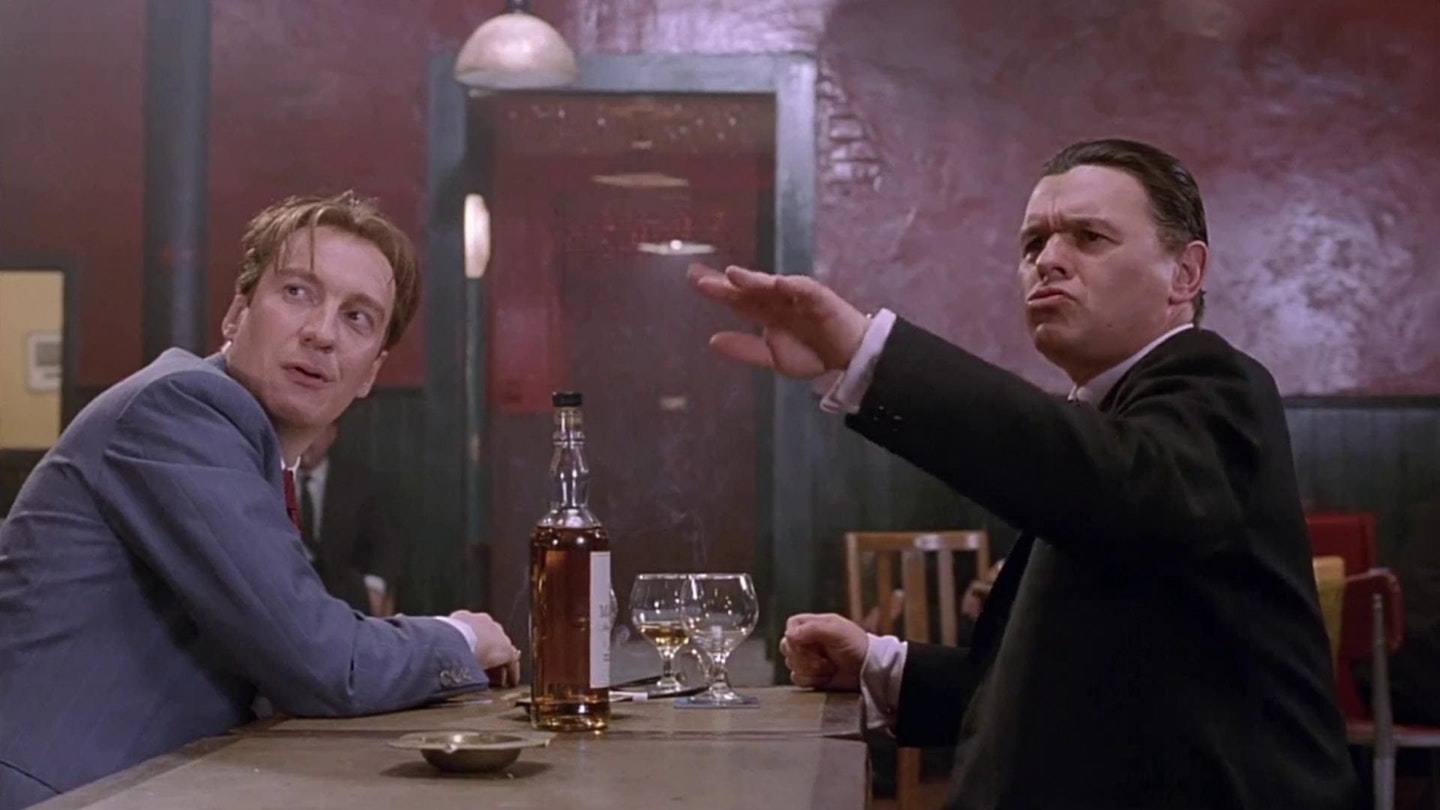
Released at a time when the Brit gangster flick was drowning in a post Lock, Stock mire of quipping geezers and sawn-off shotguns, Gangster No. 1 delivered a breath of fresh air. Originally a project for the Sexy Beast trio of director Jonathan Glazer and writers Louis Mellis and David Scinto (they left following due to the oft-cited ‘creative differences’), the plot sees ageing cockney crook Gangster 55 (Malcolm McDowell) picking through his past, a reminiscence sparked by the release from prison of his former business associate Freddie Mays. Paul Bettany channels a young Michael Caine and mesmerises as the young, sexually ambivalent Gangster, tearing it up in ‘60s London with Freddie (David Thewlis). Full of (but never overwhelmed by) perfect period trimmings. photographer turned director Paul McGuigan ladles on the style but strips away the Guy Ritchie-esque cackle and glee. This is gangster life, in all its grim, gruesome glory.
Read the Empire review here.
11) Layer Cake (2004)
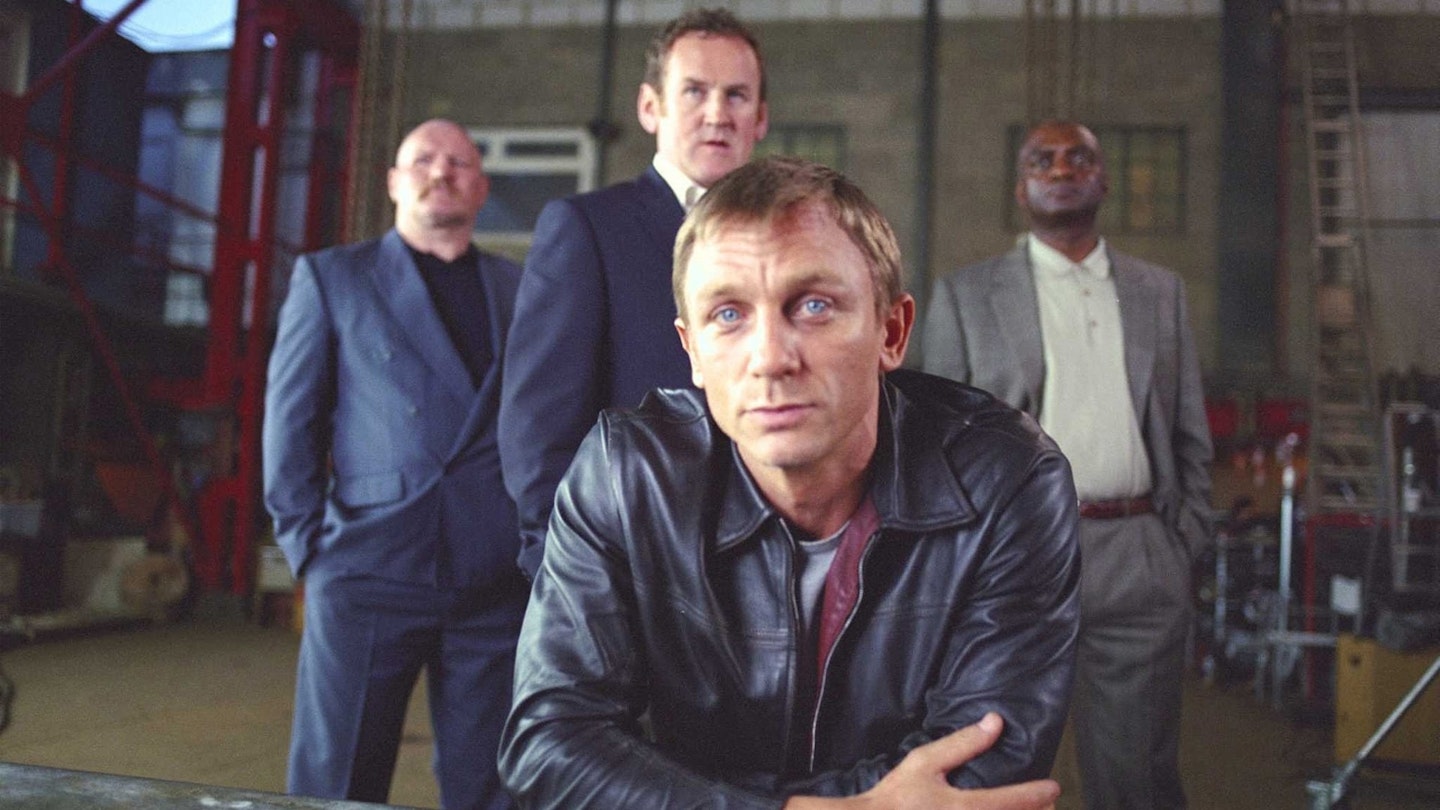
Essentially a drug-sprinkled playground for Daniel Craig to flex his 007 chops pre-Casino Royale, Matthew Vaughan’s sparky debut showed raw potential for both director and star. The directorial debut for the Kingsman filmmaker follows the future Bond as a nameless cocaine distributor who ironically prefers to keep his nose clean when it comes to violence and the politics of his profession. His covert operation is upended when he’s recruited by mob boss Jimmy (Kenneth Cranham) to venture into London’s criminal underbelly on shady business. Since its arrival in 2004, the film has proven to be a showcase of rising British talent, featuring baby-faced Tom Hardy and Ben Whishaw, and a star-making turn from Sienna Miller. Full of cool, clipped one-liners, pacy energy and a knife twist of a final scene, this is one modern gangster movie that deserves to have its cake and eat it too.
Read the Empire review here.
10) The Krays (1990)
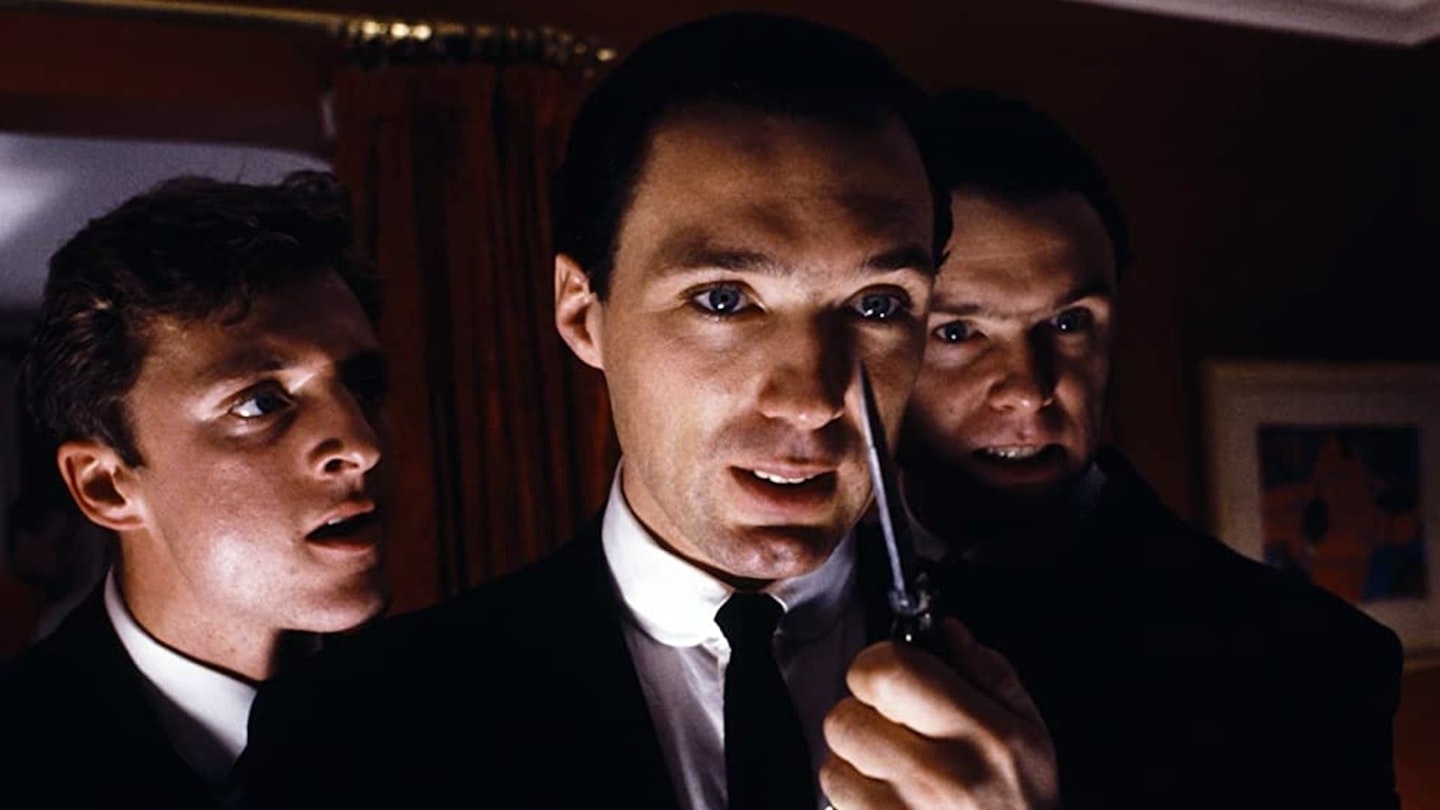
Before The Krays was released, it made no sense. Martin and Gary Kemp – two pretty-boy brothers, respectively the bassist and guitarist of New Romantic pop band Spandau Ballet – headlining a major feature film as notorious real-life gangster twins Reggie and Ronnie Kray? Nope, no sense at all. But they were great, delivering creepy, wired performances. Peter Medak’s drama is grimy (you can smell 1960s east London here), brutal (Ronnie administering a ‘Chelsea smile’ is scarring on more than one level) and often horribly tense, a disturbing study of intimidation – and also, a portrait of a man (Reggie) falling apart, with lethal consequences, climaxing with an unforgiving and unforgettable stabbing sequence. In 2015, Brian Helgeland presented his own take, with Tom Hardy playing both brothers in Legend – and while it’s a solid job with two powerhouse turns by Hardy, it didn’t leave the imprint that this film did. Those Spandau boys pulled it out of the bag. Pure gold.
Read the Empire review here.
9) Performance (1970)
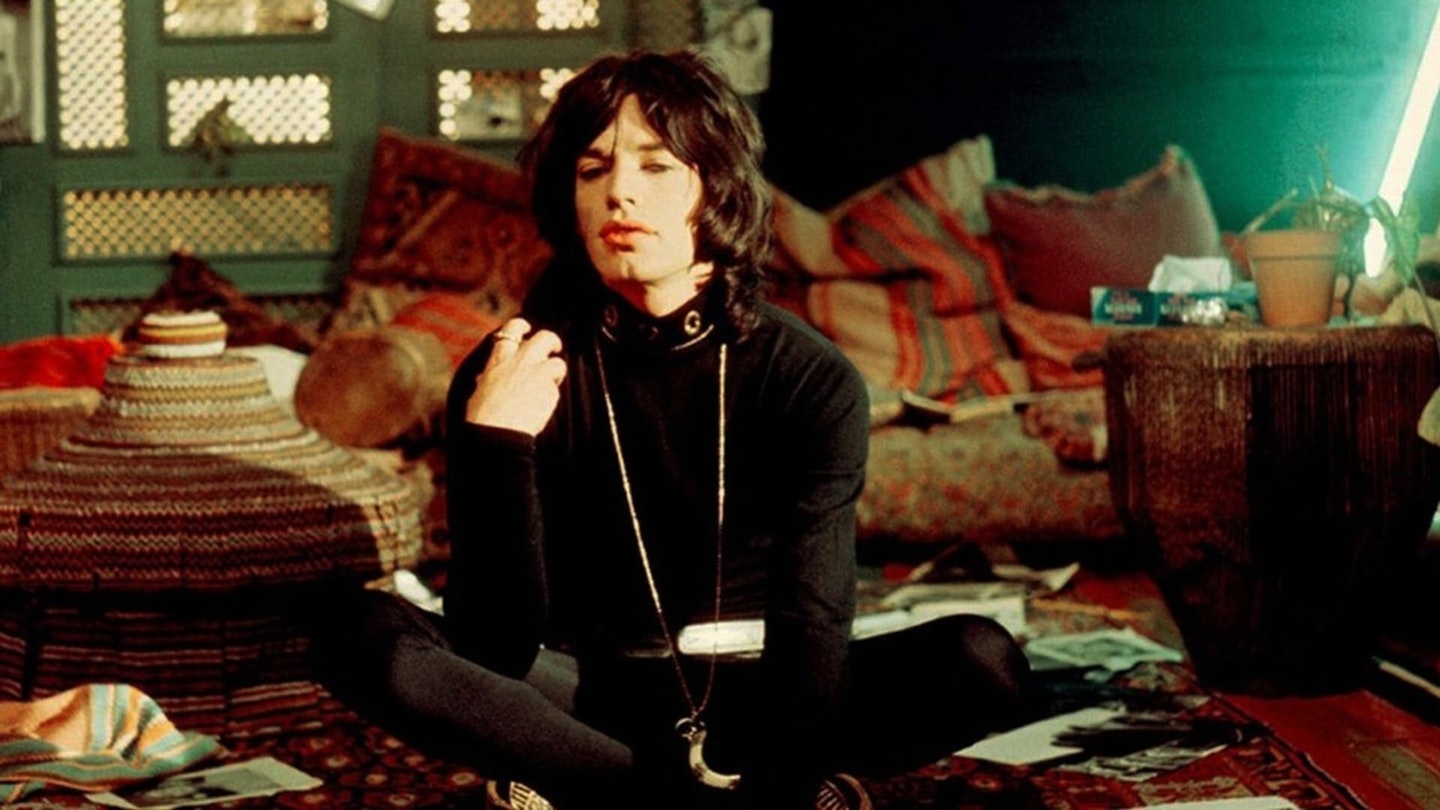
“I need a bohemian atmosphere!” howls Mick Jagger during this most peculiar 1970 gangster drama (thriller? Horror? Comedy?). The Rolling Stone, in his most out-there film appearance — which is saying quite a lot given he made Freejack — plays dissolute former rock star Turner, holed up in a debauched mansion. James Fox is gangster Chas, who begins hiding out there and becomes entangled with Turner and his two girlfriends. There are psychedelic mushrooms. There is deeply avant garde camerawork. Fox puts on the women’s clothes. Performance certainly delivers on atmosphere, though it’s less bohemian than altogether unhinged. People then didn’t know what to make of it: “The movie is neither very good nor very bad. Interesting,” reflected a shellshocked Roger Ebert. Five decades on, it remains a potent watch, fusing gangster elements with trippy horror, its intentions still thoroughly oblique. But as a true cinematic original, it needs to be experienced. To borrow a Jagger-ism, it takes a well-trod genre and paints it black.
Read the Empire review here.
8) In Bruges (2008)
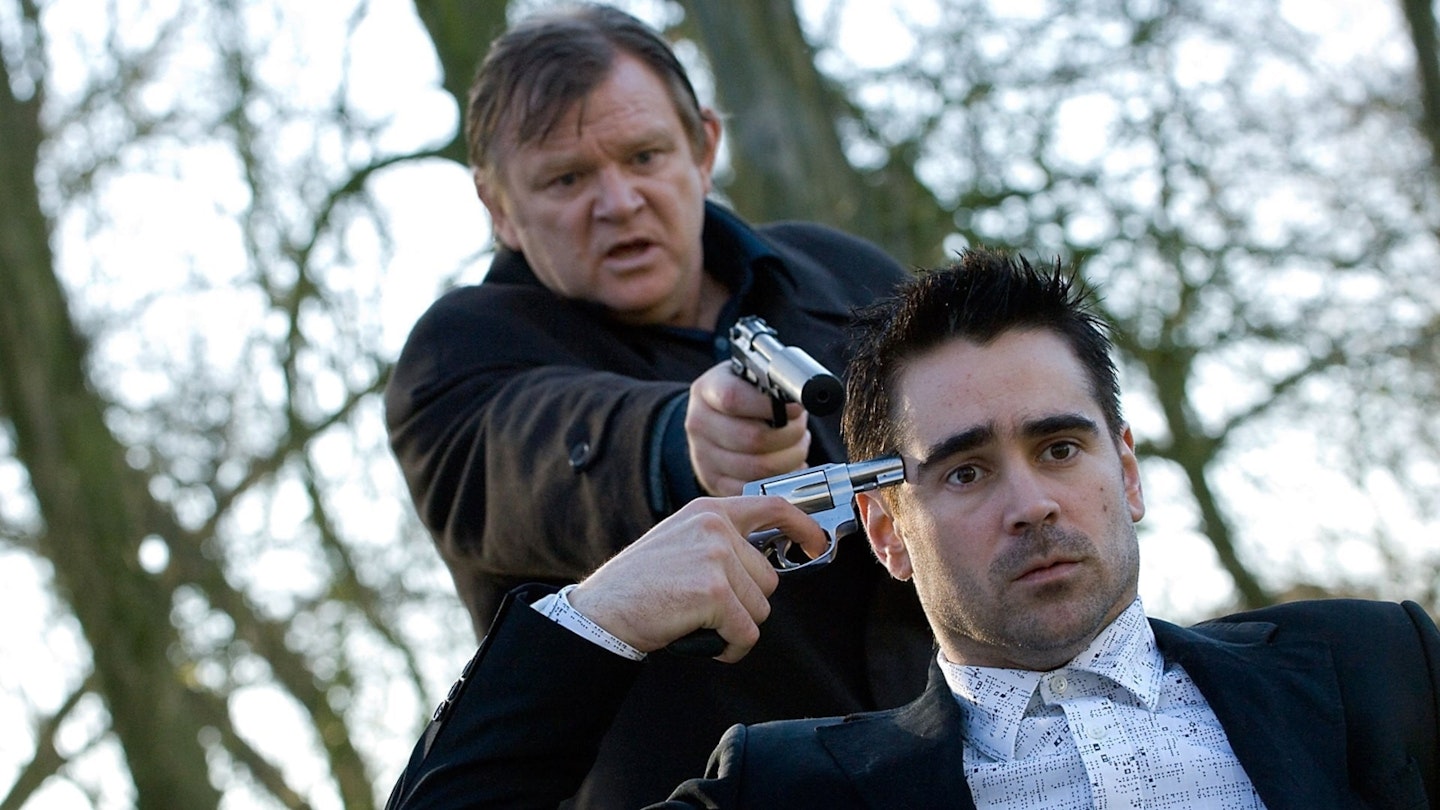
We know what you’re thinking: “Hey! In Bruges is Irish, not British!” But not only is filmmaker Martin McDonagh British-Irish (he was born and raised in London, to Irish parents); we’d actually argue that it’s the tension between the Britishness of the genre set-up and the Irishness inherent in its blackly comic execution that makes the film so remarkable. A wilful break from the Guy Ritchie formula, McDonagh’s feature directorial debut sees Colin Farrell and Brendan Glesson on terrific form as Ray and Ken, two exiled Irish hitmen left killing time and contemplating their violent ways in the picturesque Belgian city of Bruges after a job gone awry. The result is less Blighty, bloodshed and F-bombs (although Ralph Fiennes’ traditional Bri’ish mob boss Harry takes care of that quota), and more a profound meditation on guilt and mortality. It’s heady stuff, made not just palatable but riotously entertaining by McDonagh’s sharply observed, award-winning screenplay and Farrell and Gleeson’s wicked Irish craic. And if you don’t believe us, then you’re a fuckin’ inanimate object. (Harry’s words, not ours.)
Read the Empire review here.
7) Brighton Rock (1948)
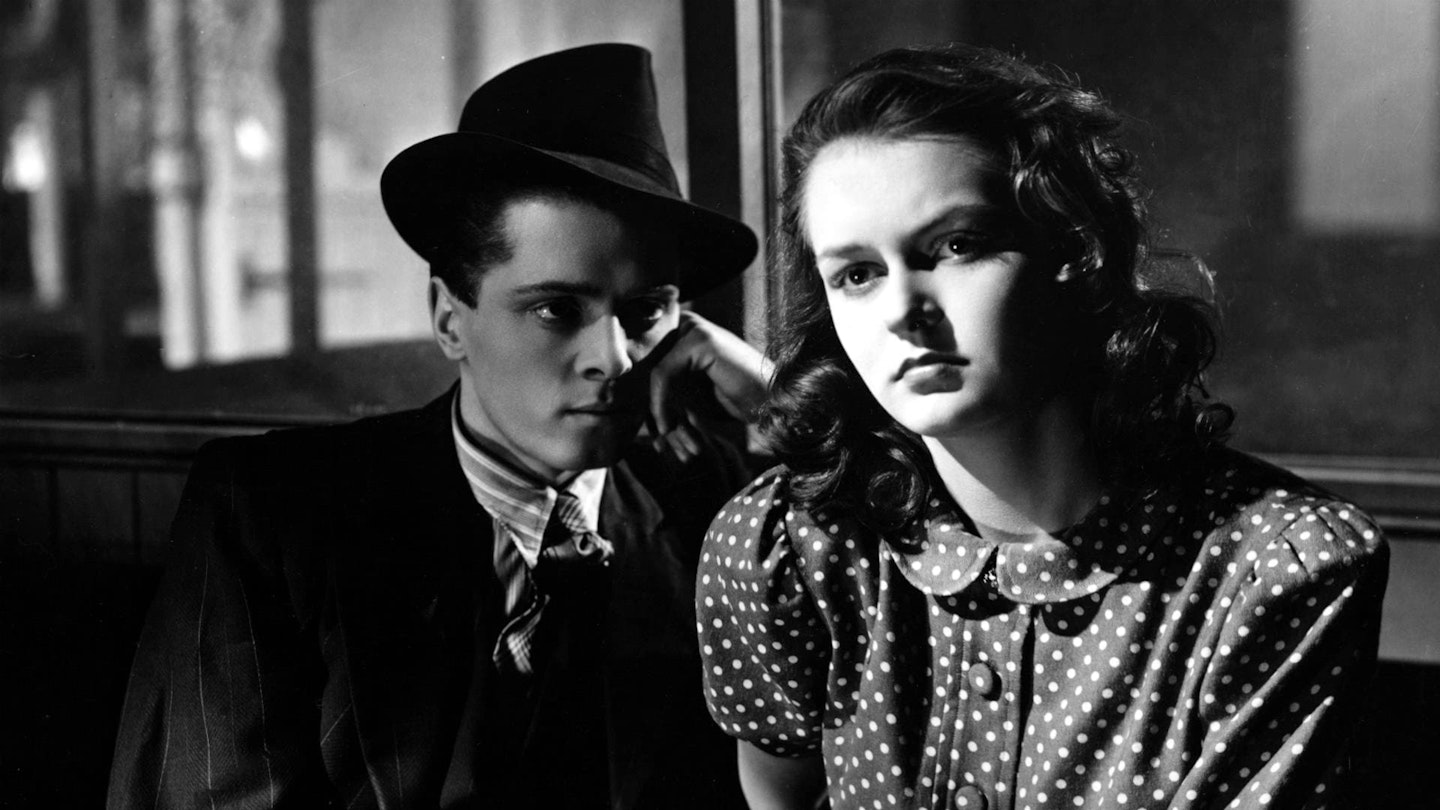
If you only know Richard Attenborough as Jurassic Park’s John Hammond with his “wee flea circus” then his performance in John Boulting’s Brighton Rock will be a revelation. Sir Dickie is terrifying and terrific as Pinkie Brown, an evil teenage hoodlum who leads a gang of older men (who are mostly shit-scared of him) in the dark alleyways of pre-war Brighton. Pinkie runs protection rackets and wants to work the racetracks, settling scores with a razor (a slit on his cheek saw the film retitled Young Scarface in the US) but his kingdom is threatened by naïve waitress Rose (Carol Marsh) who can blow his alibi for a murder. Being adapted from a Graham Greene novel, it reeks of Catholic guilt, and Harry Waxman’s shadowy, claustrophobic cinematography amps up the atmosphere of sin and dread. As such, it’s a uniquely British take on film noir staples, finding telling contrast between breezy seaside cheeriness and the sinister criminal underbelly. Less kiss-me-quick, more kill-me-quick.
Read the Empire review here.
6) The Lavender Hill Mob (1951)
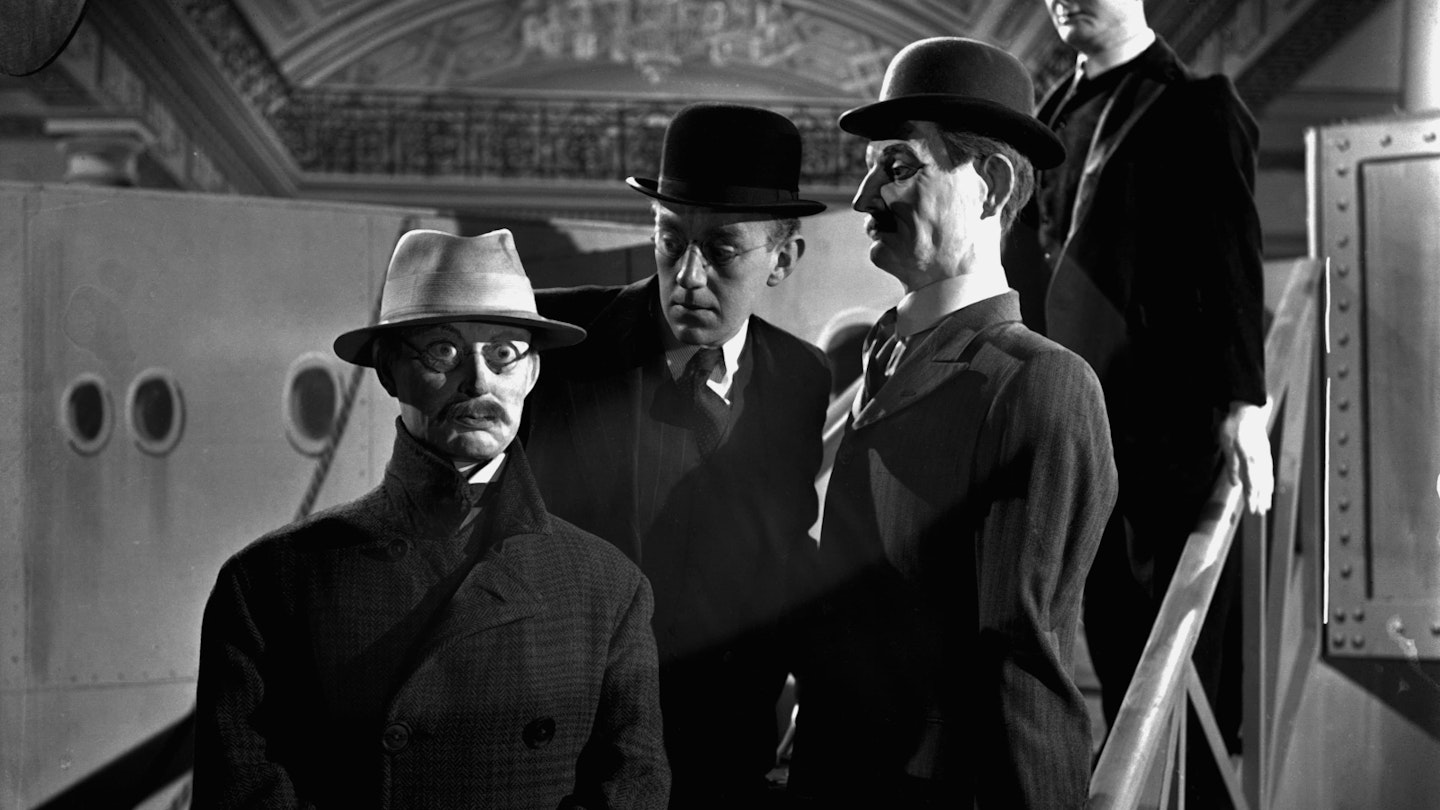
Some of the genius of this Ealing Comedy can be traced back to an unlikely source: the Bank of England. As the legend goes, during pre-production for the film the team consulted the fiscal wizards there, to ask for advice on how a million-pound heist might be orchestrated. The suggestion — melting down gold and reforming it into innocent-looking tourist trinkets — became the fulcrum of The Lavender Hill Mob’s plot. While it might technically be a ‘mob’ film, there are no brutal beatings or heads in vices here — it’s an altogether gentler breed of gangster tale, with the criminal team headed up by Alec Guinness’ timid but scheme-y bank employee, Henry.
Holland. Sid James gives a flavoursome performance as one of the hoods, and watch out for Audrey Hepburn’s first ever named character, Chiquita. Once you’ve watched it, it’s worth checking your drawers for Eiffel Tower ornaments — you just never know...
Read the Empire review here.
5) The Ladykillers (1955)
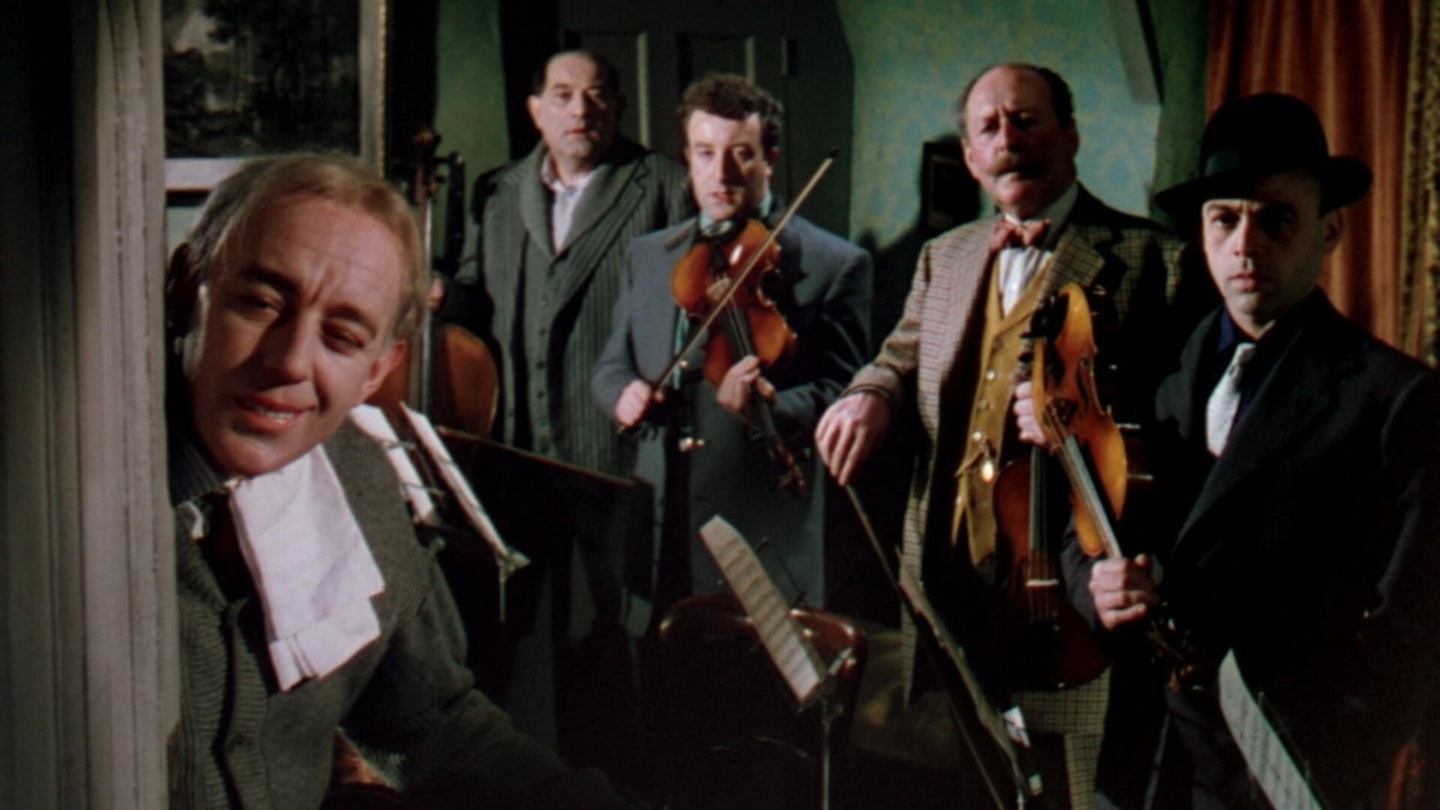
For a film that sits in the top flight of Ealing comedies, The Ladykillers also works as a terrific crime movie. Taking flight from a delicious premise — a nefarious gang of hardened criminals led by wonky- toothed Professor Marcus (Alec Guinness) have to contemplate murdering their sweet old landlady (a BAFTA winning Katie Johnson) who discovers their plans for a train robbery— Alexander Mackendrick’s film channels Hitchcock’s The Lodger and Carol Reed’s The Third Man, doing for the heist movie what Kind Hearts And Coronets does for the serial killer thriller. The first act features a robbery, enlivened by suspenseful cross cutting, while the second sees the body count (and farce) climb higher. The performances are all pitch-perfect, but the MVPs are the American pairing of director Mackendrick and screenwriter William Rose, who pull off a juggling act with tone that would win Britain’s Got Talent, bringing Hollywood verve to the most English subject matter. A joy from first frame to last. IF
Read the Empire review here.
4) Sexy Beast (2000)
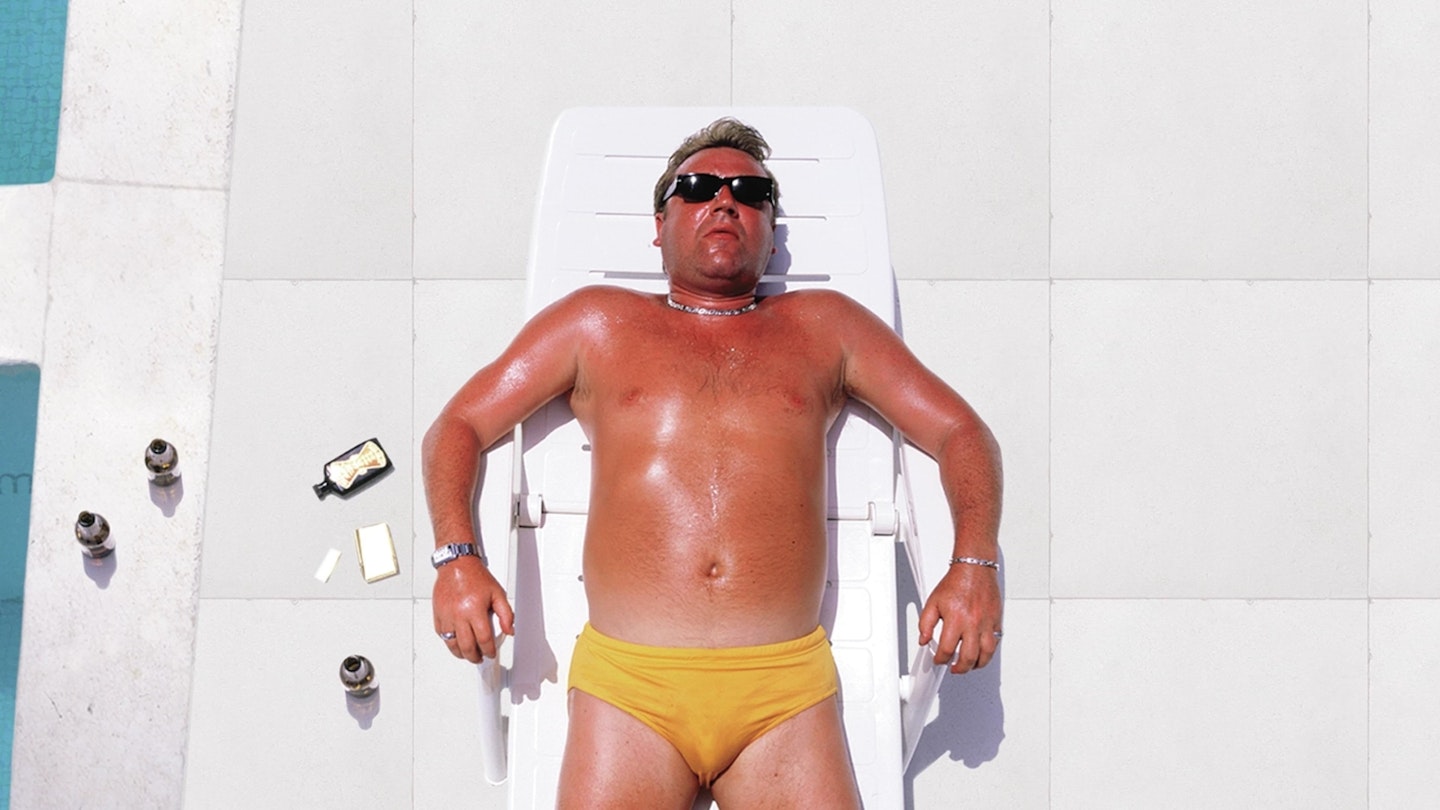
The late ‘90s and earlier ‘00s were overrun with British gangster films, but Jonathan Glazer’s debut feature was entirely its own animal. Often in the cryptic form of a foreboding, machine-gun toting man-rabbit stalking around retired criminal Gal Love’s troubled consciousness. Other than the conceit – Gal (Ray Winstone) is pulled back from that Costa del Sol-based retirement for One Last Job, by unprecedentedly potty-mouthed psycho Don Logan (Ben Kingsley) – Sexy Beast was trope-free, Glazer exploding into the film industry with an evocative, occasionally surrealist gangster film so refreshing – and so alarming – it seemingly, singlehandedly, revitalised a genre it didn’t even feel a part of. And major credit goes to writers Louis Mellis and David Scinto, whose endlessly quotable dialogue was so precise, so poetic, the actors didn’t change a word. This is a stressful one. It gives you the sweats.
Read the Empire review here.
3) Lock, Stock And Two Smoking Barrels (1998)
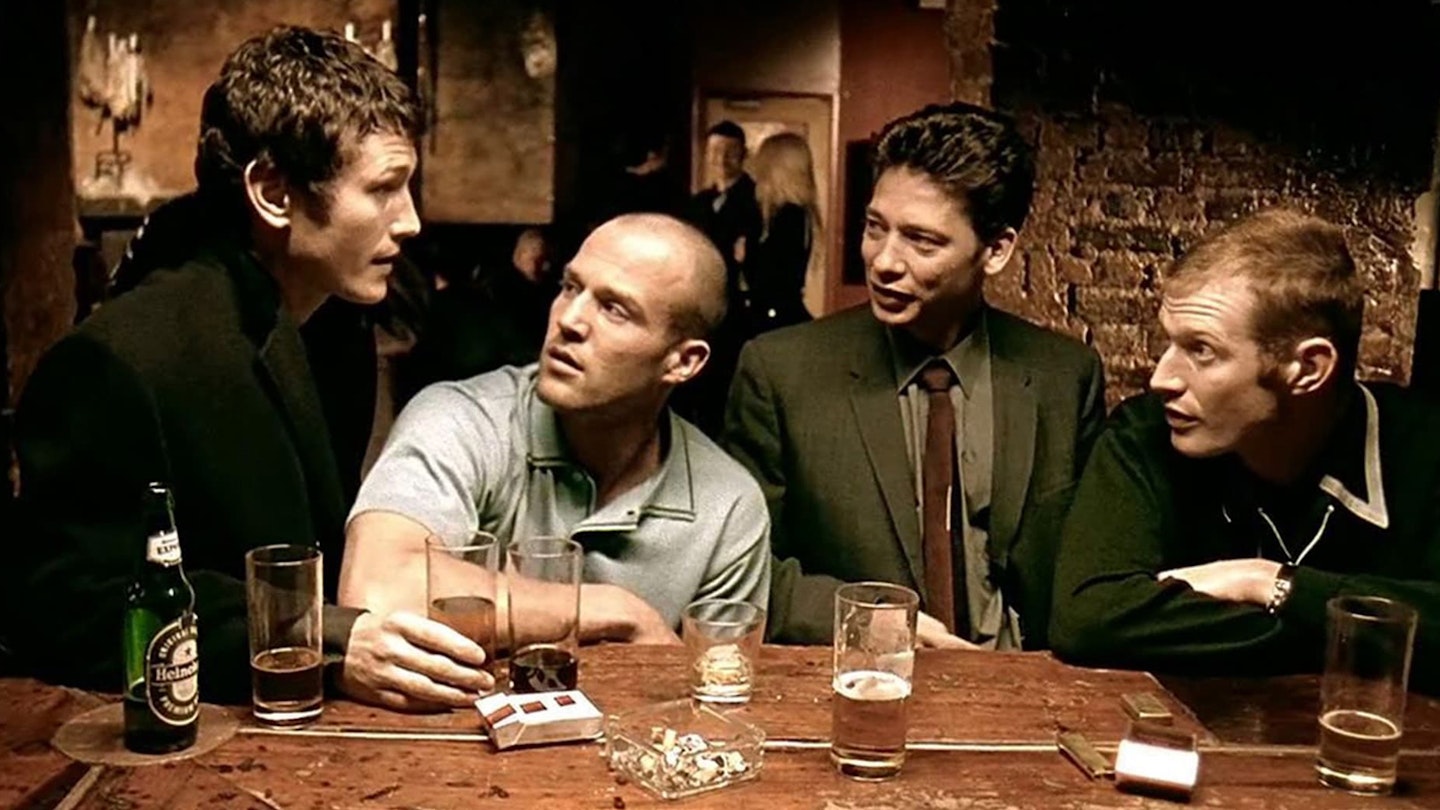
Aside from Quentin Tarantino, no one has crashed into gangster films with as much genre-redefining verve as Guy Ritchie. Not only did Lock, Stock establish Ritchie’s distinctive voice and mockney gangster sub-genre, but it also served as the screen birth place of one Jason “The Stath” Statham (for those who hadn’t been keeping up with The Shamen’s video output, anyway). An anarchic, mischievously funny crime romp in which a group of hapless wide-boys get in deep with gangster ‘Hatchet’ Harry and decide to pull a heist in order to pay him off, Lock Stock is a chaotic cocktail of plot threads and capers that, in lesser hands, could easily have tripped over its own elaborately tied shoelaces. Yet, somehow, Ritchie pulls it off, and does so with the wildly confident pizazz that would go on to become his calling card. Where else can you expect to find the Stath with a burning spliff in each ear, Sting as a bartender, and a man beaten to death with a 15” rubber cock?
Read the Empire review here.
2) Get Carter (1971)
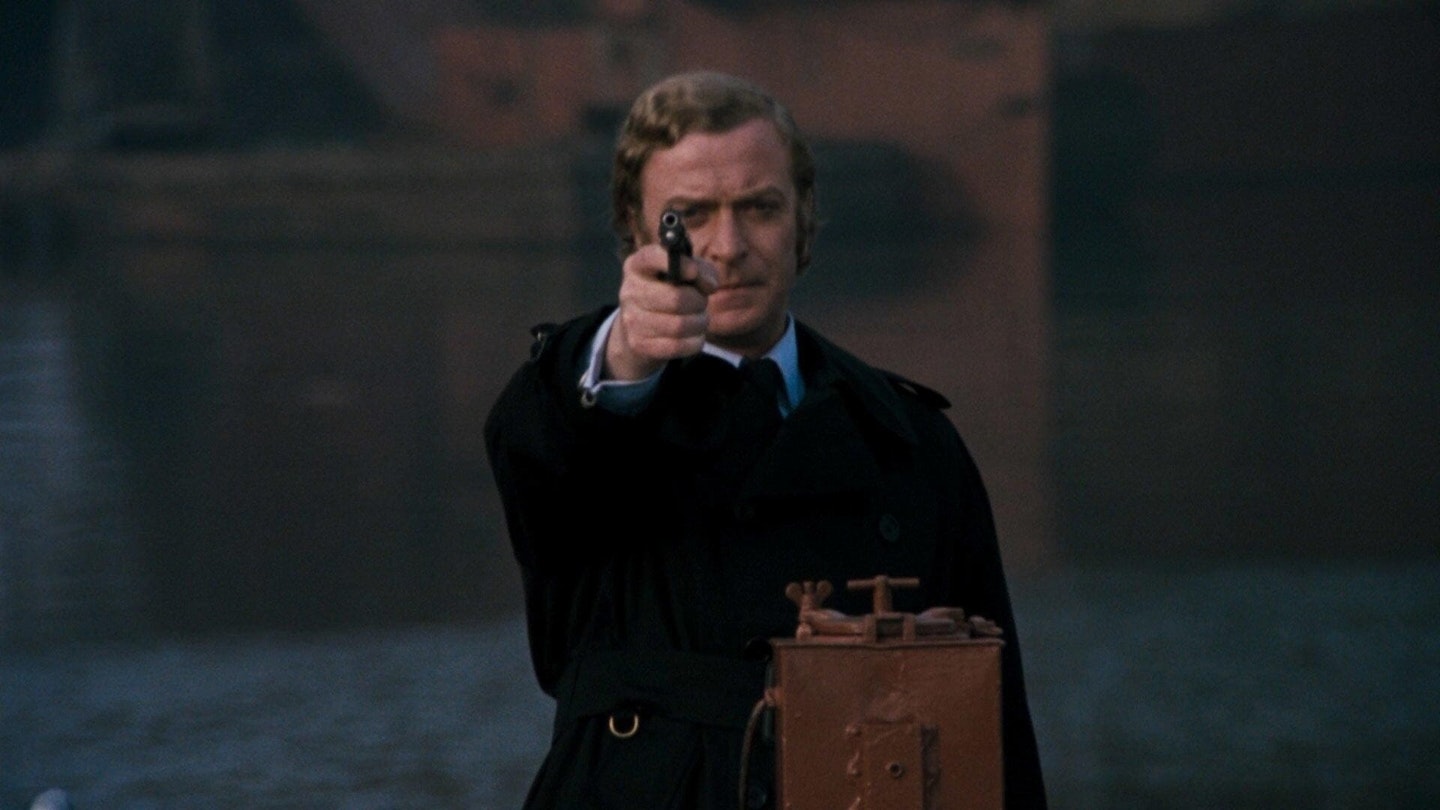
Since Zulu turned him into a star, Michael Caine had been no stranger to a morally complex character. But Mike Hodges’ bleak revenge drama – turned around in record quick time after Ted Lewis’ novel, Jack’s Return Home, was published in 1970 – was arguably the first to recognise that there was genuine menace in Caine’s hooded glare. “I’d almost forgotten what your eyes looked like,” he tells Ian Hendry’s Eric at one point. “Still the same. Pissholes in the snow.” But he could easily be talking about himself. As Carter, returning to his home town of Newcastle (no, the accent question is never addressed) to avenge the death of his brother, Caine is a brutal, unrelenting, unblinking force of nature, confronting heavies whilst fully nude (Carter, not the heavies) or tossing the original big-man-in-bad-shape Alf Roberts from Coronation Street off the roof of a car park with the same cold, calculating fury. Truly iconic.
Read the Empire review here.
1) The Long Good Friday (1980)
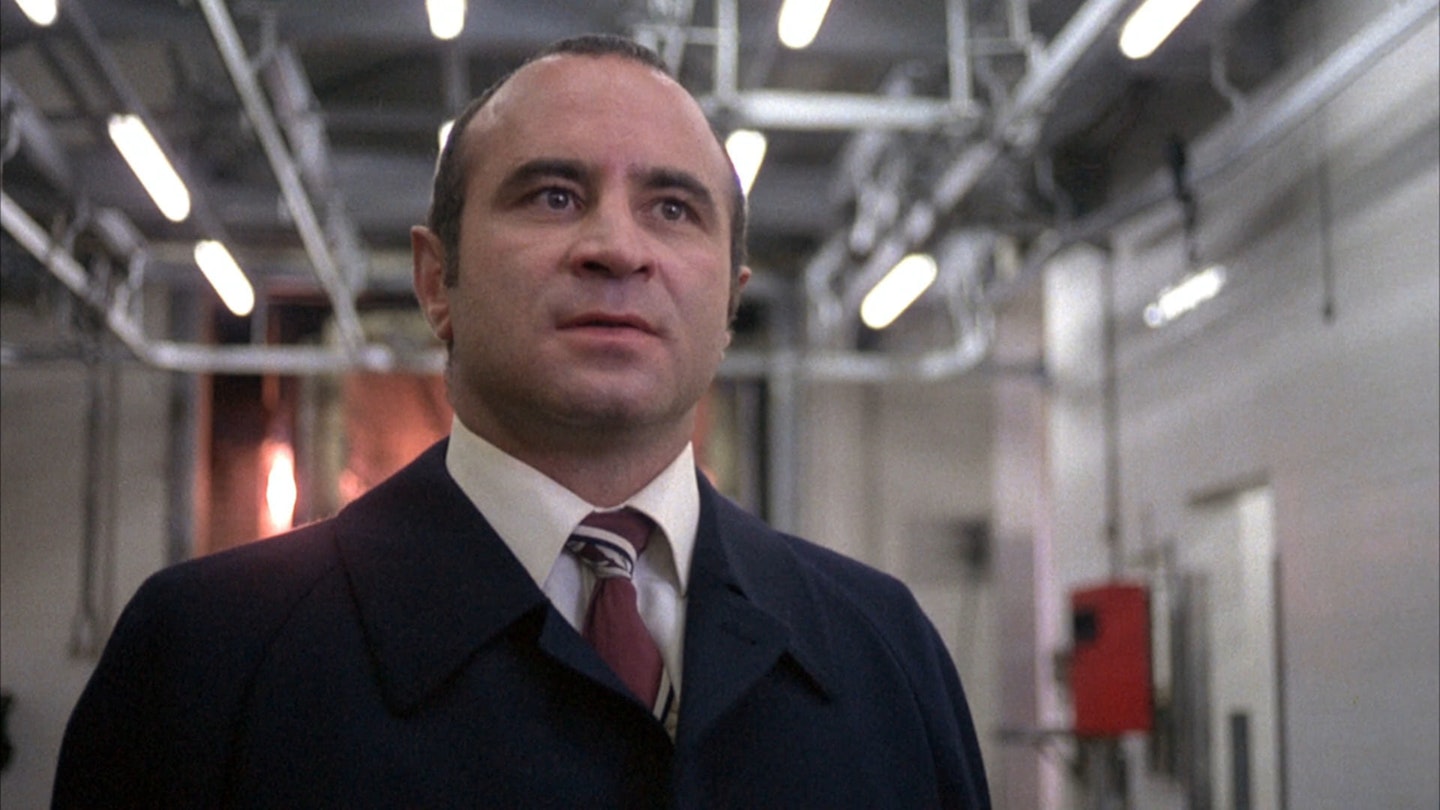
Sandwiched by one of the greatest character introductions of all time (Bob Hoskins’ Harold Shand stalking through Heathrow Airport, while Francis Monkman’s iconic score worms its way into your brain) and one of the greatest endings of all time (the camera focused on Hoskins’ face as he Kubler-Rosses the hell out of his impending demise at the hands of Pierce Brosnan’s IRA man), John Mackenzie’s 1980 thriller is a glorious slice of intricately-plotted pulp. Hoskins, in the role that turned him into a star, is mesmerising as Shand, a man undone by his short temper, lack of vision and overconfidence. The surrounding cast is also packed — there’s Helen Mirren as Harold’s lady, Victoria, of course, but in the soon-to-be-famous-faces stakes there’s a young Dexter Fletcher, Kevin McNally, Karl Howman (Jacko from Brush Strokes!), Gillian Taylforth and, perhaps best of all, Derek Thompson – aka Charlie from Casualty – as Shand’s treacherous right-hand man who, by the end, finds himself beyond the help of even Holby City.
Read the Empire review here.
